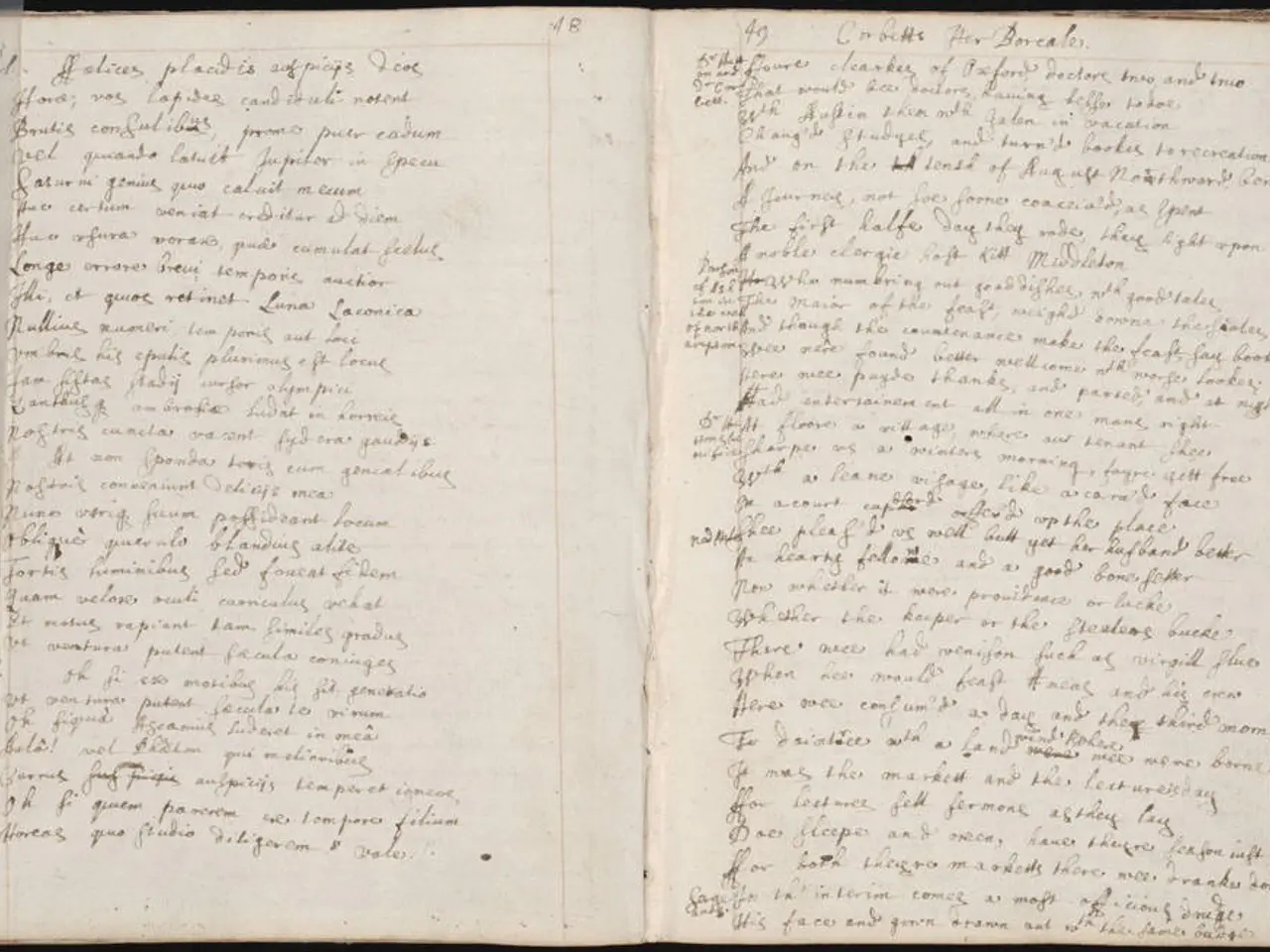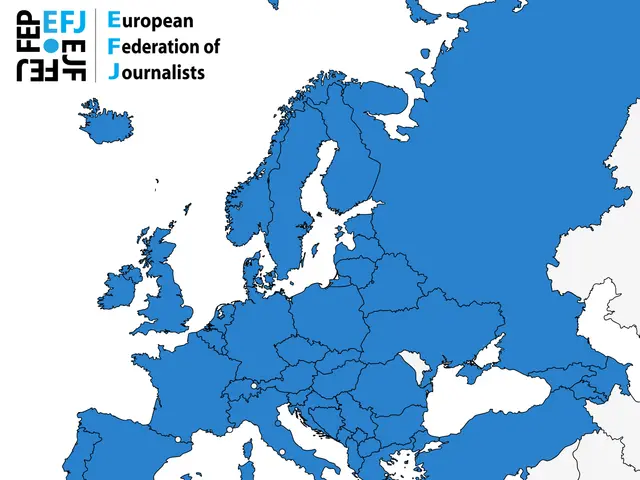Allegations of Ghostwriting Leveled against Brosius-Gersdorf: Plagiarism Investigator Stands Firm on Inquiry
Prominent Plagiarism Investigator Accuses Professor of Significant Plagiarism
Stefan Weber, a renowned plagiarism investigator, has accused Professor Dr. Frauke Brosius-Gersdorf of significant plagiarism in her doctoral thesis. Weber claims that 86 pages were actually written by her husband, Hubertus Gersdorf, and points to various textual parallels and quotation mistakes shared between their academic works [2][3].
Weber's assessments are based on scientific analysis and empirical research, highlighting identical phrasing and overlaps between Brosius-Gersdorf's dissertation (submitted in 1997) and her husband's habilitation thesis (submitted in 1998) [1][4]. These similarities, according to Weber, are not coincidental but indicative of ghostwriting or copied content.
Brosius-Gersdorf, however, has denied the plagiarism allegations and published an expert opinion from a Stuttgart law firm stating there was no scientific misconduct found in her academic work [1][4]. The legal and institutional response to Weber’s allegations has been limited, with neither the Universities of Hamburg nor Potsdam, nor the SPD making public statements on the credibility of the claims, contributing to wider controversy and public debate over academic integrity in Germany [1].
The dispute involves claims of plagiarism—unauthorized copying or ghostwriting—in academic theses, which can lead to disciplinary actions including revocation of degrees in Germany. However, no formal university investigation outcome has been publicly disclosed [2][3]. Brosius-Gersdorf's legal action against Weber indicates attempts to challenge the defamation aspects of the accusations, but Weber’s rejection of the damages claim reflects a firm stance on his evidence and position [2][3].
From a scientific analysis viewpoint, the key issue is the presence of textual parallels and duplicated quotations between two closely timed doctoral and habilitation theses by spouses. Such overlaps, if found deliberately unacknowledged, constitute legitimate grounds for plagiarism accusations in academic ethics. However, the expert opinion commissioned by Brosius-Gersdorf disputes scientific misconduct, suggesting either acceptable scholarly overlap or disputes about interpretation of the text matches [1][4].
Brosius-Gersdorf and her husband have criticized Weber for violating the principles of suspicion reporting, stating that the criticized statements are not to be qualified as suspicions, but as conclusions and thus as opinions within an expert opinion established on a scientific basis [2][3]. They also argue that scientific expert opinions are generally to be considered as opinions and that the expert opinion therefore remains legally secure.
In summary, Stefan Weber’s expert opinion and published evidence strongly suggest plagiarism and ghostwriting allegations in Brosius-Gersdorf’s doctoral thesis based on shared text with her husband’s work. Yet, Brosius-Gersdorf has legally and publicly contested these claims, and the academic institutions involved have so far refrained from official disciplinary action or detailed public commentary [1][2][3][4].
Read also:
- Germany's three-month tenure under Merz's administration feels significantly extended
- Governing body allegedly persists in enjoying vacation time amidst Spain's highest danger level due to fires, claims Feijóo
- United Nations Human Rights Evaluation, Session 45: United Kingdom's Statement Regarding Mauritius' Human Rights Record
- Hurricane-potential storm Erin forms, poised to become the first hurricane in the Atlantic Ocean this year.

![The image shows a formalin/PFA-fixed paraffin-embedded section of an anti-pfa1 antibody [epr22828]...](/en/content/images/size/w640/format/webp/20260226200441_csic-monoclonal-antibody-neutralizes.jpeg)






